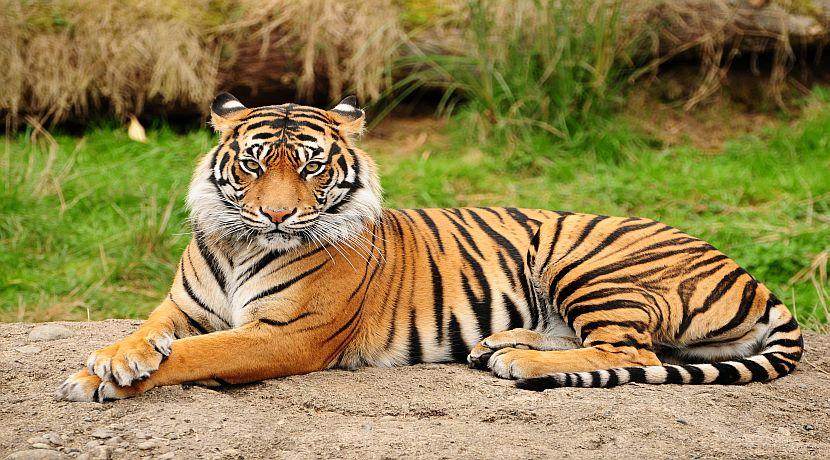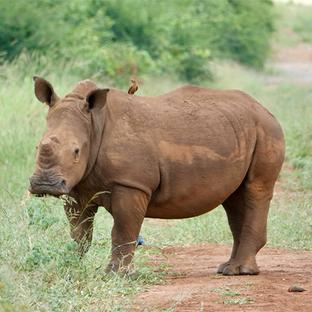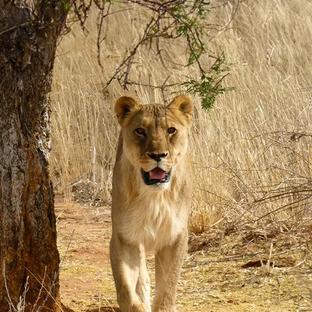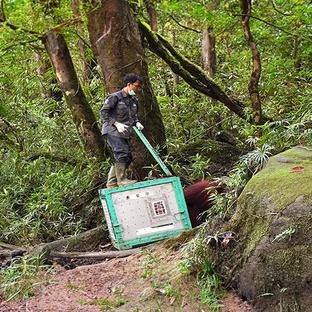South East Asia is the location. A lone Tiger is walking across the forest clearing, returning to her cubs after an unsuccessful hunt. The rainforest she calls home used to stretch as far as the eye could see, her territory alone reaching 8 square miles, but now it is a sparse landscape, only inhabited by a small patch of forest. This forest was once home to an abundance of prey for her to feed on, but since the bulldozers moved in and transformed the area into a lumber yard she has been forced further and further away from her base in search of a meal for her three hungry cubs. These excursions into the now human controlled area are putting her at an extra risk. If she comes into contact with one of the workers on the logging plantation she may be hit, beaten or even killed if they feel under threat from her. This happens even though they have encroached on her territory and all she is doing is trying to feed her family. What is most disconcerting for this mother is that the workers and lack of food are not her biggest worry. Poachers are. Traditional Asian medicine demands the use of tiger parts, and as a result the desire on the black market for a tiger her size is huge. With a $50,000 bounty on her head, she has to avoid snares, poisoned food and water and the sights on a rifle just to ensure she survives another day. She is a highly intelligent animal, but she cannot run forever. One day she will be caught by the poachers and killed, leaving her three cubs orphaned and unlikely to survive on their own. Tiger numbers have fallen 97% in the last 100 years. We cannot allow this to continue.

Fortunately change has begun. International Tiger Day was created in St Petersburg in 2010 and it is now in its fifth year. The aim of the day is to promote a global system to protect the Tigers natural habitat and raise awareness of Tiger conservation. These magnificent creatures are facing a manmade extinction and will die out unless something is done urgently. The threat to Tigers is threefold:
Massive Habitat Loss
Less than 100 years ago Tigers roamed from the edge of Turkey to the far Eastern corners of Russia. Now, due to industrial scale deforestation, Tigers have disappeared from 93% of their former range and can only be found in small pockets of their remaining habitat. With the world's rainforests vanishing at a rate of 36 football pitch sized sections per minute, Tigers have been forced into smaller and smaller areas. This means they now struggle to find prey, breed, and avoid poachers.
Human Tiger Conflict
Due to humans cutting down vast swathes of forest, Tigers have had to adapt and as a result they come into contact with humans on a regular basis. With a lack of prey available in their much reduced habitats, Tigers will venture further and further out in search of food and inevitably run into the humans who are destroying their habitat or the livestock which have replaced it. One attack on the cattle which have been placed in the area where the Tiger once roamed can be fatal for the big cat, as farmers will often shoot on sight to protect their animals.
Poaching
The demand from Asia for medicines which have no proven benefits is huge. Traditional Asian medicines still involve the use of Tiger parts, anything from the whiskers to the bones, in their so called "cures," and as a result the black market for Tiger parts is huge. In areas such as Russia, due to the political instability of the region, one Tiger kill can bring in as much money as a lifetime of work, so the incentives far outweigh the possible penalties. As long as there is a demand there will always be a supply, and even though China outlawed the sale of Tiger parts in 1993, the culture surrounding the fictional benefits of medicinal Tiger parts is still prevalent in the country.

The Tigers are in trouble. 100 years ago there were 100,000 in the wild. Now there are only 3,200. They are on the brink of extinction and need all the help they can get to regain the foothold they once had. International Tiger Day was created for a reason, so help us spread the word about the plight of the Tiger.














